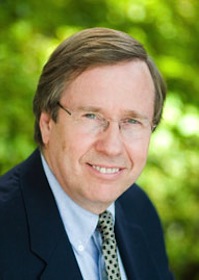Living and Learning in the Dark Night of the Soul…

Where is God? Why does God let such things happen? Why is he silent? Anguish, desolation and despondency are frequently the lot of those who have raised such questions down through the ages. Often, the asker has experienced or observed some distressing event—the young mother who comes down with cancer, the death of thousands in a tsunami, the rebellion of a child, the murder of a missionary.
At other times, the questions come from believers who interpret their experience as the absence of God from their lives. This apparent absence may accompany some tragic circumstance, or it may simply be the awareness of spiritual dryness or spiritual loneliness. There is a loss of passion, lots of unanswered questions, frustration, and occasionally despair.
Flannery O’Connor is probably right in thinking that “there is no suffering greater than what is caused by the doubts of those who want to believe.” She continues,
I know what torment this is, but I can only see it, in myself anyway, as the process by which faith is deepened… What people don’t realize is how much religion costs. They think faith is a big electric blanket, when of course it is a cross… You arrive at enough certainty to be able to make your way, but it is making it in darkness. Don’t expect faith to clear things up for you. It is trust, not certainty.
This “process by which faith is deepened” has been described by various Christian writers as “the dark night of the soul.” During the dark night, observes theologian John Coe, “the Spirit secretly does a deep work in the human spirit—a work that is so profound but feels so foreign to the Christian’s experience that it is often interpreted as the absence of God.” The Spirit’s work takes believers into places of “painful self-awareness” that they would not go on their own.
God’s specific goal in a dark night is to bring one to a deeper knowledge of one’s need for Him and a deeper embracing of Jesus’ statement, “Apart from Me, you can do nothing” (Jn. 15:5). What does not feel very spiritual in a dark night, in the believer’s dryness and spiritual doldrums, turns out to be a profound work of the Spirit that acquaints the Christian with the truth of him- or herself….
[B]elievers in a dark night feel trapped. They become aware of how little they really love God, how little joy they take in the spiritual disciplines. Yet they also perceive, with a kind of sadness, that the world and its pleasures cannot satisfy….
[T]he experience of the dark night is [not one] of spiritual zest but of the truth, particularly the truth of oneself. The spiritual disciplines at this stage serve as a mirror to the reality of the believer’s sinfulness and need for God. The measure of spirituality is not pleasure, but truth and reality, which is what God is interested in helping the beginner experience at this stage.
Dr. Coe’s use of “beginner” in this last sentence does not refer to a new convert. Rather, the beginner is the person who is starting to come alive in his or her faith. The age can be fifteen or fifty.
The dark night is precisely what it implies—it is an experience in the dark for the one traveling through it. That is, it is intended to set beginners along a path in which they will not know what to do on their own and in the power of their own strength and cleverness. It is supposed to bring them to their end. Thus, it is easy for beginners to become confused by the spiritual dryness, leaving them with the temptation of working out their neurotic guilt in the power of works righteousness. In moments of deeper despair, it is easy to give up on the spiritual disciplines altogether.
The dark night is clearly a hazardous time to travel alone! Proverbs 11:14 points to wisdom available in the “multitude of counselors.” Again in Proverbs, “Iron sharpens iron” (27:17 )—other godly men and women can guide, instruct, and encourage during the uncertainties of the dark night. They can also help guard against one of the greatest temptations of the dark night, the temptation to become a moralist and try to spiritually fix oneself. In Dr. Coe’s words, a mentor or counselor can point to a “more perfect Lover of the soul who works in the believer from the inside out, in pleasure, through dark nights, to a richer, deeper union and love with his children.”
Dr. John H. Coe is professor of philosophy and spiritual theology and director of the Institute for Spiritual Formation at Talbot School of Theology, Biola University. His “Musings on the Dark Night of the Soul: Insights from St. John of the Cross on a Developmental Spirituality” is a very helpful overview of God’s working in these difficult moments of spiritual dryness. The audio of five of Dr. Coe’s lectures on spiritual formation, delivered at Fullerton Evangelical Free Church, are available here, along with outlines for each talk.


 August 9, 2013
August 9, 2013 







I found this immensely helpful. Thank you for posting it.